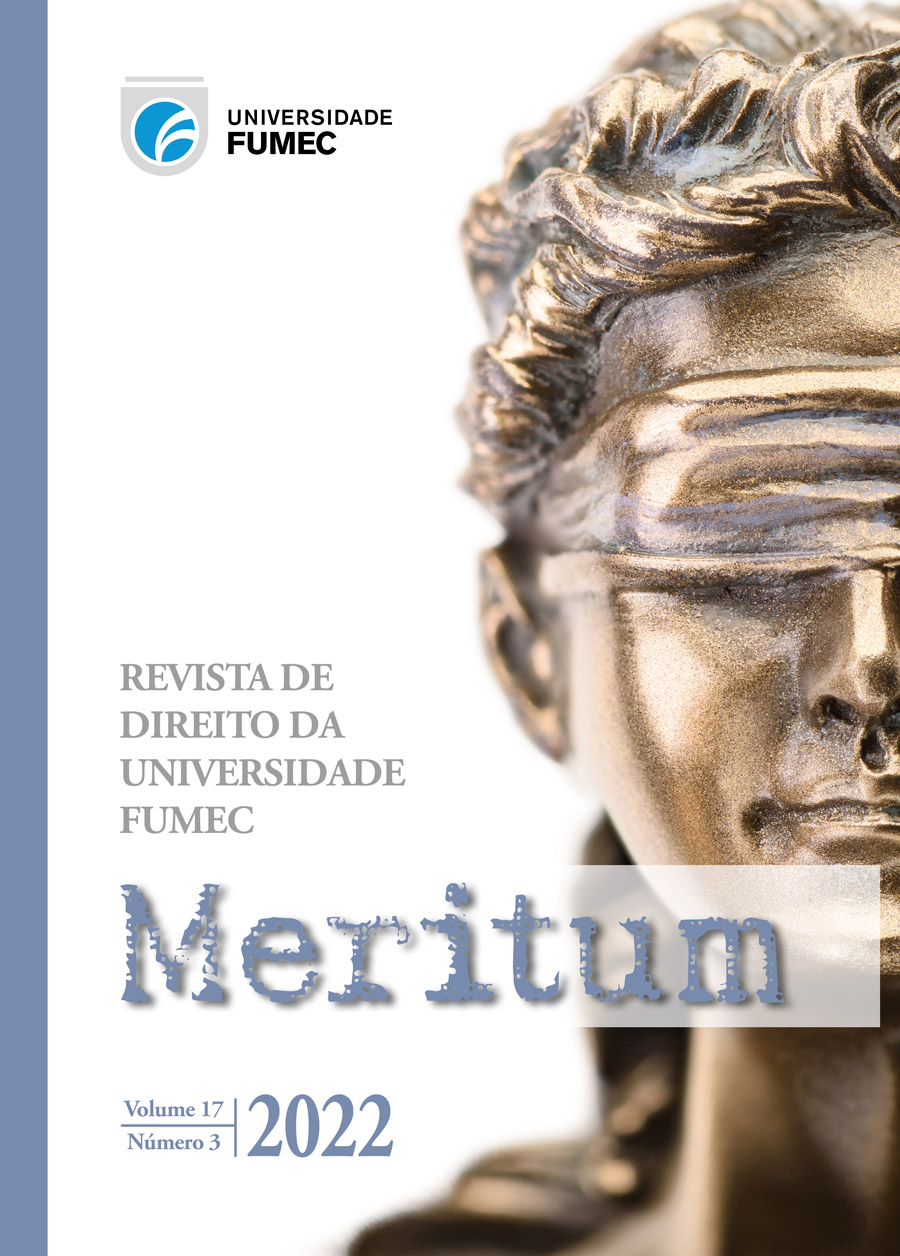A ANÁLISE SOBRE A INCLUSÃO DO DISPUTE BOARDS COMO MÉTODO ALTERNATIVO DE SOLUÇÃO DE CONFLITOS EM CONTRATOS ADMINISTRATIVOS FIRMADOS COM A ADMINISTRAÇÃO PÚBLICA
DOI:
https://doi.org/10.46560/meritum.v17i3.9232Abstract
The study of brazilian administrative law, especially in the questions related to the way in which conflicts and conflicts are used by the Public Administration, gained new contours at the end of the 20th century and the beginning of the 21st century, once these attributions began to adapt to the new rules provided for in the Federal Constitution of 1988, aimed at democratizing the participation of administered in the most diverse social instances, the promotion of individual and social rights and guarantees, the elaboration of legal business for the execution of public activities by individuals, and also, the culture of peace, founded on a free, fraternal society that seeks to resolve its controversies, internally and externally, in a peaceful and consensual manner. And on the form of to resolve conflicts, in the infraconstitutional and doctrinal scope, it was sought to contextualize the insertion of this consensus in administrative contracts, mainly through the innovations contained in Law nº. 14.133/2021 in relation to Law 8.666/1993, including the institute of the resolution committee for dispute resolution (dispute boards). In this way e, from the analysis of the essential characteristics of the theme, it was possible to conclude that the application of this alternative system of conflict resolution may play an important role in achieving the principles of celerity, efficiency and peaceful resolution of conflicts by the contemporary public administration outlined in the current Federal Constitution.
Downloads
Published
Issue
Section
License
Autores que publicam nesta revista concordam com os seguintes termos:
- Autores mantém os direitos autorais e concedem à revista o direito de primeira publicação, com o trabalho simultaneamente licenciado sob a Licença Creative Commons Attribution que permite o compartilhamento do trabalho com reconhecimento da autoria e publicação inicial nesta revista;
- Autores têm autorização para assumir contratos adicionais separadamente, para distribuição não-exclusiva da versão do trabalho publicada nesta revista (ex.: publicar em repositório institucional ou como capítulo de livro), com reconhecimento de autoria e publicação inicial nesta revista;
- Autores têm permissão e são estimulados a publicar e distribuir seu trabalho online (ex.: em repositórios institucionais ou na sua página pessoal) a qualquer ponto antes ou durante o processo editorial, já que isso pode gerar alterações produtivas, bem como aumentar o impacto e a citação do trabalho publicado (Veja O Efeito do Acesso Livre).






